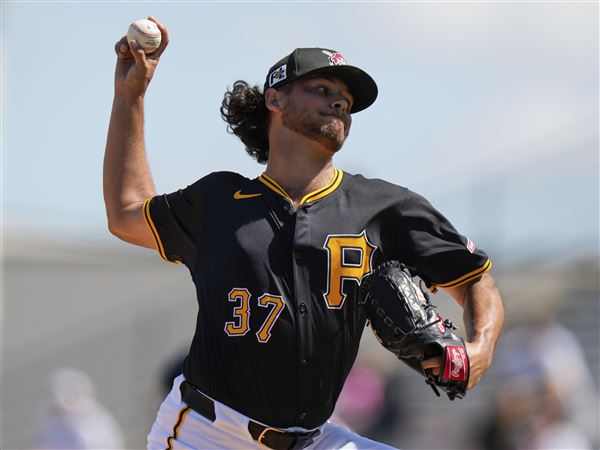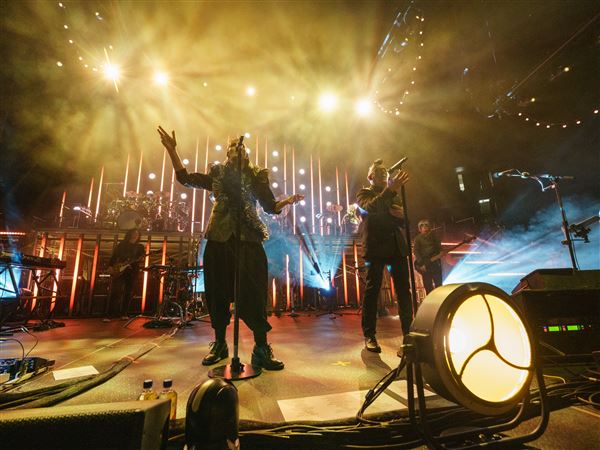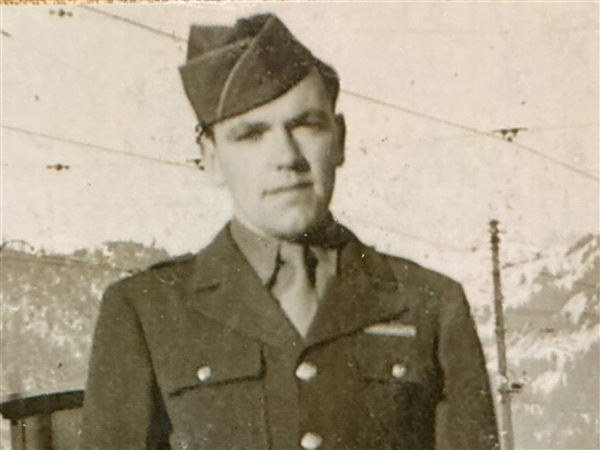Back in April, as I have done for many more springs than I care to remember, I went to the Pirates home opener without the one thing that baseball's Opening Day supposedly promises: hope.
The very most that I had to look forward to was that if the team lost -- which was often the case in the preceding two decades and would happen again on this day -- it would at least provide a solid two-week window for me to do some variation on the "Did you hear that they're not selling beer at the stadium this year because the Pirates lost the opener?" joke that I've come close to perfecting since about the time that Barry Bonds took off for San Francisco.
But something happened as April played out and turned into May: The Pirates weren't completely horrendous. Granted, they weren't doing exceedingly well yet, either, and we Pirates fans had been teased with good starts each of the last two years only to have things unravel so badly that women and children weren't even allowed to attend the games during either of those seasons' final two months.
But I continued to watch all through the summer, not expecting much but still watching. I had started following the team when I was 6, and not that long after that, Willie Stargell hit a home run over the right field fence to give the Pirates a 2-1 lead over the Orioles in Game 7 of the 1979 World Series.
I watched him hit it on a 13-inch, black-and-white TV in my bedroom -- my mom had let me stay up on a school night -- and even though there were four innings left, I knew that the lead was safe. That's the way little kids view things. Nothing seems even remotely difficult, let alone impossible.
But life doesn't turn out to be that easy. After winning that World Series, the Pirates were mostly lousy throughout the 1980s, and after the blip of three straight division titles from 1990-92, embarked on their North American professional sports record of 20 consecutive losing seasons.
The embarrassment from this was so bad that it led many Pittsburghers to flee the sport entirely and embrace -- good God! -- ice hockey. Still, despite players who often didn't seem to know which base to throw the ball to and ownership that didn't seem to care, some of us remained.
For me, I guess I hung in there with the Pirates because I've also surely lost more often than I've won over the last 20 years, and so how critical could I really be of them? I mean, I took the time to compile a list of my greatest accomplishments over that same period, and all that I came up with was graduate school, no cavities and no arrests.
Perhaps my estimation of myself has been skewed, however. The great baseball writer Roger Angell said this in The New Yorker many years ago: "The players represent us. When they do well, we do well. You're watching yourself out there."
If this is true, so surely is the converse: When the teams that we root for do poorly, it wears on us, it beats us down. And when that losing lasts for an entire generation, it means that we have suffered uniquely, like no other fan base ever has. Look, I'm not dumb, and I realize that there is suffering and then there is suffering, and that the outcome of a baseball game cannot be equated with, you know, an E. coli outbreak.
And yet, for reasons that I am too inarticulate to convey, the results of these games have an importance to them, and, indisputably, those results here in Pittsburgh have been disastrous, historically so.
So when Mark Melancon recorded the last out against the Rangers on Sept. 9 to preserve the team's 82nd win of the year, it wasn't exactly relief that I felt, and it wasn't quite elation. It would be silly to say that 20 years of losing had been undone in a single season. That stretch still exists, all of the failures and the bad times and the bad luck, and it has become a part of all of us.
But it was what made so many of us want to bear witness to something so relatively modest -- a winning season. It was important, because many of us had become convinced that it was something that was simply not possible.
Manager Clint Hurdle has said in interviews that despite all the years of losing, this Pirates club was not out to contend with history: "You rip the rearview mirror off, man."
Hurdle is a fine manager, and every Pirates fan owes him a great debt. But he had that one wrong.
First Published: September 25, 2013, 8:00 a.m.















